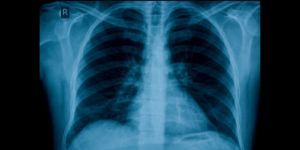Autoimmune Disorders Greatly Increase Risk of Pulmonary Embolism
A study covering over half a million patients hospitalized for autoimmune disorders finds that they are at greatly increased risk of pulmonary embolism in the first year after their initial hospitalization.

A study covering over half a million patients hospitalized for autoimmune disorders finds that they are at greatly increased risk of pulmonary embolism (PE). The study, carried out by researchers at Lund University in Sweden, was published online this Saturday in The Lancet.
Since some autoimmune disorders have been linked to venous thromboembolism, the researchers set out to determine whether there was any association between the disorders and risk of PE. To do so, they looked at the incidence of PE in all people in Sweden who had never been hospitalized for venous thromboembolism and who received a primary or secondary diagnosis of an autoimmune disorder between 1964 and 2008. Their resource was the MigMed2 database, which includes individual-level information about all registered residents of Sweden.
During the period covered, 535,538 individuals were admitted to the hospital due to an autoimmune disorder, and their overall risk of PE in the first year after admission for autoimmune disorder was 6.38. All 33 autoimmune disorders included in the records were associated with a significantly increased risk of PE during first year after hospitalization, but several were associated with particularly high risk: immune thrombocytopenic purpura (10.79), polyarteritis nodosa (13.26), polymyositis or dermatomyositis (16.44), and systemic lupus erythematosus (10.23).
The increased risk occurred for both sexes and all age groups, though it decreased as time passed after the initial hospitalization for autoimmune disease. At 1-5 years, it was 1.53; at 5-10 years, it was 1.15, and at 10 years and later, it was 1.04.
“Our findings suggest that these disorders in general should be regarded as hypercoagulable disorders,” write the researchers.